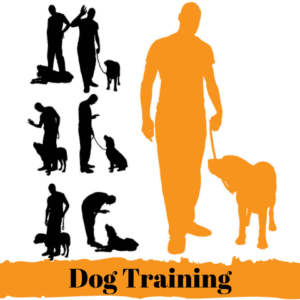Obsessive-Compulsive Disorder (OCD) is not limited to humans; our canine companions can also suffer from this condition. Recognizing the symptoms and implementing appropriate treatment is crucial to ensuring the well-being of our furry friends.
In this blog post, we will delve into the world of canine OCD, exploring its symptoms and various treatment options.
Understanding Canine OCD:
Symptoms of Canine OCD:
Canine OCD manifests in various ways, often leading to repetitive behaviors that go beyond typical canine habits. Common symptoms include:
- Excessive licking or chewing is often focused on a particular body part.
- Persistent tail chasing.
- Compulsive pacing or circling.
- Excessive barking or whining.
- Uncontrollable digging, often leading to injuries.
- Fixation on specific objects or shadows.
Causes of Canine OCD:
While the exact cause of canine OCD is not fully understood, a combination of genetic, environmental, and neurological factors may contribute. Dogs exposed to stress, changes in routine, or traumatic events may be more prone to developing OCD.
Treatment Options:
Consult a Veterinarian:
The first step in treating canine OCD is a thorough examination by a veterinarian. A professional evaluation will help rule out other potential medical issues and determine the severity of the OCD. Diagnostic tests may include blood work, imaging, and behavioral assessments.
Behavioral Modification Techniques:
- Positive Reinforcement: Rewarding desired behaviors can help redirect your dog’s attention away from compulsive actions. Use treats, praise, and toys to encourage positive behavior.
- Distraction Techniques: Introduce new toys or activities to keep your dog’s mind engaged and prevent fixation on obsessive behaviors.
Environmental Management:
- Routine and Stability: Establishing a consistent daily routine can reduce stress and anxiety in dogs prone to OCD. Providing a stable environment with a dedicated space for your dog can also be beneficial.
- Enrichment: Mental stimulation through puzzle toys, interactive games, and varied activities can help alleviate boredom and reduce compulsive behaviors.
Medication:
In severe cases, veterinarians may prescribe medications to manage OCD symptoms. These can include selective serotonin reuptake inhibitors (SSRIs) or tricyclic antidepressants. Medication should always be administered under the supervision of a veterinarian.
Professional Behavioral Therapy:
Seek the expertise of a certified canine behaviorist or trainer experienced in treating OCD. These professionals can develop a tailored behavior modification plan, providing guidance on addressing specific compulsive behaviors.
In summary, canine OCD is a challenging condition, but with proper understanding and intervention, it can be managed effectively. If you notice any signs of OCD in your dog, consult a veterinarian promptly to ensure a comprehensive and appropriate treatment plan.
Through a combination of behavioral modification techniques, environmental management, and, if necessary, medication, you can help your furry friend lead a happier, healthier life. Remember, patience and consistency are vital in supporting dogs with OCD on their journey to recovery.
Can the methods used to treat humans with OCD work for dogs?
The methods used to treat humans with Obsessive-Compulsive Disorder (OCD) can be adapted and applied to dogs. Still, there are important considerations and differences between human and canine behavior and physiology. Here are some treatment approaches commonly used for humans with OCD and their potential applicability to dogs:
Behavioral Modification Techniques:
- Humans: Cognitive-behavioral therapy (CBT) is a common approach for treating OCD in humans. It involves identifying and challenging irrational thoughts and behaviors and replacing them with healthier patterns.
- Dogs: Behavioral modification techniques are also used for treating canine OCD. Positive reinforcement, redirecting attention, and desensitization can effectively modify undesirable behaviors in dogs.
Medication:
- Humans: Antidepressant medications, particularly selective serotonin reuptake inhibitors (SSRIs), are often prescribed for humans with OCD to help regulate serotonin levels in the brain.
- Dogs: Veterinarians may prescribe similar medications, such as SSRIs or tricyclic antidepressants, to manage OCD symptoms in dogs. However, the dosage and choice of medication should be determined by a veterinarian based on the dog’s specific needs.
Environmental Management:
- Humans: Creating an organized and low-stress environment is important for individuals with OCD to minimize triggers.
- Dogs: Dogs with OCD may benefit from a stable and predictable environment. Establishing a routine, providing a dedicated space, and minimizing stressors can help manage their symptoms.
Enrichment and Distraction:
- Humans: Engaging in hobbies and activities can serve as a distraction and contribute to overall well-being.
- Dogs: Providing mental and physical stimulation through toys, puzzles, and varied activities can prevent boredom and redirect a dog’s focus away from obsessive behaviors.
Professional Intervention:
- Humans: Seeking help from mental health professionals, such as psychologists or psychiatrists, is common for humans with OCD.
- Dogs: Certified canine behaviorists or trainers with experience in addressing compulsive behaviors in dogs can provide valuable guidance and intervention.
While these methods can be adapted, it’s crucial to recognize that dogs and humans are different species with distinct communication styles and responses. Dogs may not fully comprehend cognitive interventions as humans do, but they can respond well to positive reinforcement, consistent training, and environmental adjustments.
Before implementing any treatment, consulting with a veterinarian is essential. A veterinarian can assess the dog’s overall health, rule out medical causes for the behaviors, and recommend appropriate treatment options, which may include a combination of behavioral modification, medication, and environmental adjustments.
Recent Posts
Summer Safety Guide for Dog Owners: Keeping Your Canine Companion Cool and Comfortable
Summer brings warmth and sunshine, inviting humans and their canine companions to enjoy the outdoors. However, the rise in temperature also increases the risks of overheating and heat-related...
The Importance of Heat Safety for Dogs: Understanding Heatstroke and How to Prevent It
Heatstroke is a serious condition that can occur in dogs when their body temperature becomes dangerously high, typically as a result of prolonged exposure to high temperatures or excessive physical...



